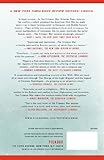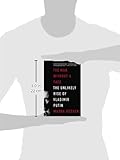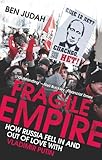In 1830, in response to the crowning of Louis-Philippe as king of France after revolution deposed Charles X, Russia’s Nicholas I wrote, “However, our allies, without agreeing beforehand with us on a step so important, so decisive, hastened...to crown insurrection and usurpation—a fatal, incomprehensible step to which must be attributed the series of misfortunes which has not since ceased plaguing Europe.”
These words could have easily been spoken by Vladimir Putin about Kyiv. Shave off the literary flourish and exchange “allies” for “partners” and “Europe” for “Eurasia,” Nicholas I’s trepidation about revolution in nineteenth century Europe speaks to Putin’s alarm about the destabilizing nature of revolution in the twenty-first century. Putin’s pushback against his Western “partners’” fancy for revolution was on full display in his speech (here in English) before members of the Russian government. The speech wove together romantic, even volkish, Russian nationalism, anti-Westernism and Russian exceptionalism, and anti-revolution. A Gendarme of Eurasia has risen! But do the verbal epaulets of a gendarme make a different Putin? A Putin 3.0? I say rather than a new Putin, we’re seeing a crystallization of positions that have been apparent since he returned to the presidency in 2012.
Putin began his speech with a romantic rendering of Crimea’s relationship to Russia. “In people’s hearts and minds,” Putin said, “Crimea has always been an inseparable part of Russia.” Crimea’s indivisibility from Russia, according to Putin, was “based on truth and justice” passed down “from generation to generation” despite all that has befallen Russia over the last century. To this, he reached back to the Ninth Century when Kievan Rusians converted to Christianity and drew a direct line to the blood Russians spilled in Crimea in the defense of the Russian empire and Soviet Union. Russia’s spirit is embedded in Crimean soil, symbolized by “Russian military glory and outstanding valor.” Indeed, Crimea is “similar to Russia as a whole” because of its “unique blend of different peoples’ cultures and traditions.” Its multi-ethnic population of Russians, Ukrainians, and Tatars live harmoniously and retain “their own identity, traditions, languages and faith.” But the materiality of this romantic history was broken when Crimea was given to Ukraine by Nikita Khrushchev in 1954. After that, Russia realized that “it was not simply robbed, it was plundered.”
Until the referendum allowing Crimea to reunify with Russia, the peninsula was an amputated appendage. Russia has been plagued by its ghost pains. Putin describes the loss of Crimea as part of a larger historical trauma that split Russians from their native lands. Indeed, he goes as far as to suggest that the loss of Crimea was a historical crime. Putin calls Khrushchev’s decision a violation of “constitutional norms,” concocted “behind the scenes” with no consideration of “the ethnic make-up of the population.” The group most affected by this dismemberment was the Russians, who felt “they were handed over like a sack of potatoes.” Despite the decades that have passed since, Russians just couldn’t “reconcile themselves to this outrageous historical injustice.” The historical trauma of being severed from their native soil was only made worse with the collapse of the Soviet Union. As a result, Russians became the largest diaspora in the world, “divided by borders” and cut off from their ancestral lands. The return of Crimea, and the return of Crimean Russians, back to Russia is akin to reattaching a severed limb. With the return of Crimea into the Russian fold, Putin, as the Gendarme of Eurasia, is rectifying these historical wrongs and making Russian blood and Russian soil congruent once again.
Crimea is not the only violation Putin feels. Russia, he asserts, has also been wronged by the West. Since the end of the Cold War, Putin claims, the West, led by the United States, has been trying to ram its way of life down the throats of others. It promised not to expand NATO, but then expanded NATO. For Putin, the West acts in its own interests at will, employing “double standards” along the way. And when powers like Russia assert their interests, the West declares those actions in violation of international law. But the West rejects international law when it suits it, says Putin, and acts “by the rule of the gun.” “They have come to believe in their exclusivity and exceptionalism, that they can decide the destinies of the world, that only they can ever be right. They act as they please: here and there, they use force against sovereign states, building coalitions based on the principle “If you are not with us, you are against us.” Putin made similar statements last September in his New York Times editorial. But now Putin stresses that he’s not taking it anymore.
The Russian president sees Western action as a centuries old policy of containing Russia by “sweeping [it] into a corner.” “But there is a limit to everything,” he warns. “And with Ukraine, our western partners have crossed the line, acted rudely, irresponsibly and unprofessionally,” adding, “If you press a spring too hard, it will recoil.” Russia is kicking back by asserting its own exceptionalism by restoring unity of people and place through the appropriation of Crimea. Russia, after all, the gendarme stresses, has “its own national interests that need to be taken into account and respected.” This is hardly a new notion. As Putin told 50,000 supporters in the Luzhniki stadium in February 2012, “We will not allow someone to impose their will on us because we have our own will! We are a victorious people! It is in our genes and in our genetic code!”
Asserting Russian exceptionalism via Crimea, however, is only the materialization of an often expressed sentiment. Since he returned to the presidency in 2012, Putin has made repeated reference to Russia as a unique civilization antithetical to the West. He increasingly sees the West as sullied by corruption and decadence symbolized by the granting of increased rights to homosexuals. In fact, since the crisis in Ukraine began, conservative voices in Russia are more fervently calling for the country to decouple from the West, for the nationalization of the elite, and for Kyiv to orientate itself east.
The third theme in Putin’s speech is anti-revolution, a fitting position for a gendarme. Putin has long blamed the West, particularly the United States, for fomenting chaos throughout the world. Though Putin states that he recognizes people’s right to peaceful protest, he stresses that the people’s aspirations are often “taken advantage of cynically.” The West “imposed on these nations that did not in any way correspond to their way of life, traditions, or these peoples’ cultures.” Instead of democracy, Putin claims “there was chaos.” The Arab Spring, which was lauded in the West as the next triumph of History was turned into “the Arab Winter.” Something similar is happening in Ukraine, according to Putin. Ukraine’s new leaders—Putin calls them “imposters,” “so-called authorities,” and “so-called politicians”—who ousted Yanukovych “resorted to terror, murder, and riots.” Like he said of Syria last year, revolution in Ukraine only brought extremists to the fore: “Nationalists, neo-Nazis, Russophobes and anti-Semites executed this coup. They continue to set the tone in Ukraine to this day.” Moreover, these people are merely puppets of the West—Ukraine’s “foreign sponsors” and “mentors.” Because of this, Putin laments, “It is also obvious that there is no legitimate executive authority in Ukraine now, nobody to talk to.”
Nothing in Putin’s speech is new. Rather, his remarks offers sharper articulations of positions he’s held since returning to the presidency. With the annexation of Crimea, Putin is ready to put these principles into practice. In particular, the gendarme’s tripartite ideology is just as much about domestic affairs as it is foreign. Since Ukraine erupted we’ve witnessed a new crackdown on dissent in Russia. This too is part of the gendarme’s worldview. In his speech, Putin said he thinks Western officials are plotting to disrupt Russia domestically by stirring up a “fifth column” of “national traitors.” He promises to “respond to them accordingly.” Given this domestic and foreign orientation, things in Russia are only to get darker. As the Gendarme of Eurasia, perhaps Putin’s future vision of Russia is akin to Baron M. A. Korf’s, a member of Nicholas I’s State Council. Korf wrote in 1848 as flames of revolution spread throughout Europe: “Our main defense against a mass revolution lies in the fact that among us there are neither the elements for revolution because freedom of the press, popular representation and things of that nature are complete nonsense to nine tenths of the Russian population. There are no instruments for revolution because there are no elements for it.”
Sean Guillory is a postdoctoral fellow in the Center for Russian and East European Studies at the University of Pittsburgh. In addition, he is an avid “Russia Watcher” and blogs about contemporary Russian politics and society at Sean’s Russia Blog (seansrussiablog.org) and hosts the podcast New Books in Russian and Eurasian Studies (newbooksinrussianstudies.com/). You can follow him on Twitter @seansrussiablog.



